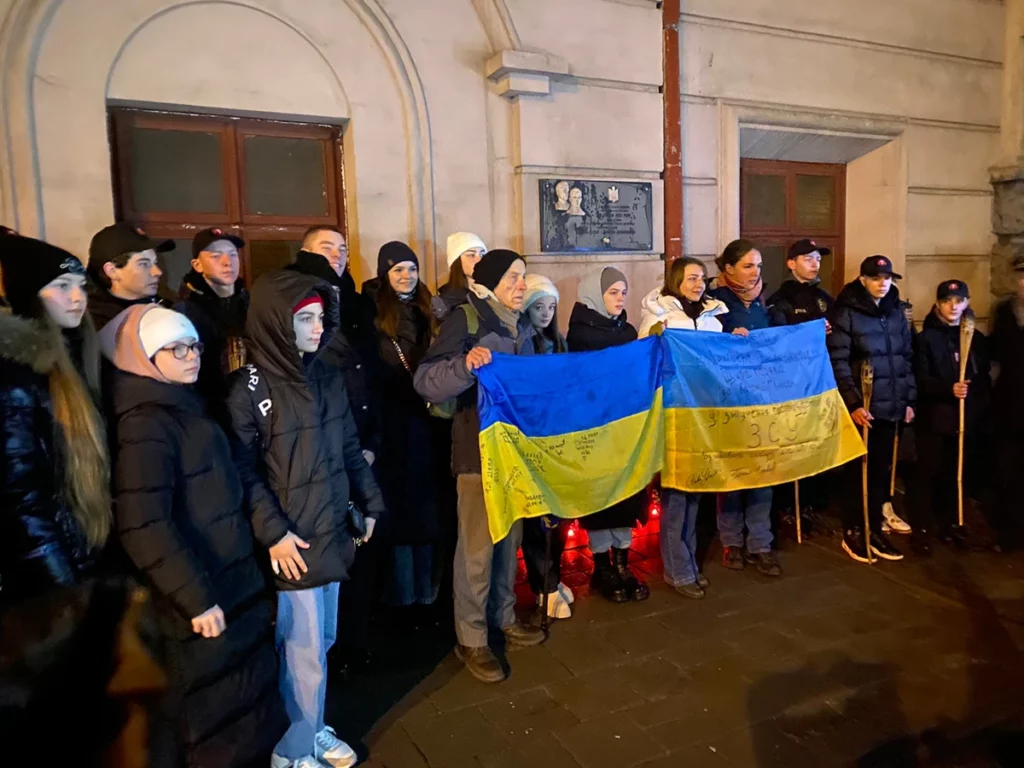Symbolically, at 06:25 (at the time of the execution) near the former Brygidka prison, representatives of the authorities, as well as veterans’ and youth organizations, lit candles at the place of execution of members of the UVO and OUN Vasyl Bilas and Dmytro Danylyshyn.
As part of the commemoration, they also performed the Anthem of the Organization of Ukrainian Nationalists.
The memory of outstanding Ukrainians was also honored at the Yanivskyi cemetery. Those present laid flowers and lit candles at the graves of Vasyl Bilas and Dmytro Danylyshyn at the Sich Riflemen’s Memorial (field No. 38). Afterwards, a memorial service was held.
“Toughness and memory of Ukrainian Heroes is perhaps the most vivid example of the struggle for the idea of a free and strong Ukraine. It is on such principles, in today’s conditions, that it is necessary to educate future generations of patriots,” said Ulyana Gredil, deputy head of the “Apostolic Chota” organization.
Historical reference:
Dmytro Danylyshyn was born on April 2, 1907 in Truskavets. He finished three classes of a folk school, and went to work as a shoemaker. Vasyl Bilas has to be an uncle.
Vasyl Bilas was born on September 17, 1911 in Truskavets. After finishing the seven-year school, he worked as a salesman. Both of them belonged to the stratum kuren named after Ivan Bohun in Drohobych. V. Bilas was tried several times for his participation in Plast. As part of the OUN five, they also participated in the attacks on the post office in the cities of Truskavets and Boryslaw and the murder of the deputy of the Polish Diet, Tadeusz Goluwik.
On November 30, 1932, a group of the OUN attacked the post office in Horodok (Lviv region) with the aim of expropriating funds. The overall management of the operation was carried out by Roman Shukhevich and Mykola Lebid. Dmytro Danylyshyn and Vasyl Bilas were detained while retreating from the scene of the events, and Maryan Zhurakivskyi and Zenon Kossak were later arrested. During the trial, D. Danylyshyn and V. Bilas were sentenced to death. Executed on December 23, 1932 in the city of Lviv, on the territory of the Bryhydky prison. D. Danylyshyn’s last words were: “I’m just very sorry that I can’t die for Ukraine one more time.”
At the time of the execution, memorial services were held in many Greek-Catholic churches in Galicia, while the Polish police, fearing mass riots, did not dare to intervene. The Polish authorities refused to hand over the bodies of the executed for burial. However, they were later buried in the city of Lviv at the Yanivskyi cemetery.

